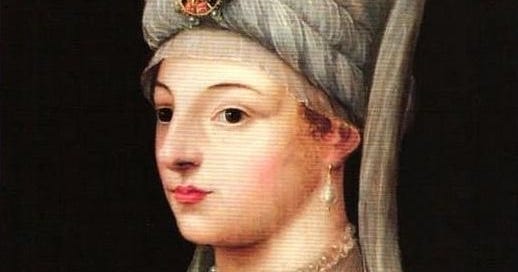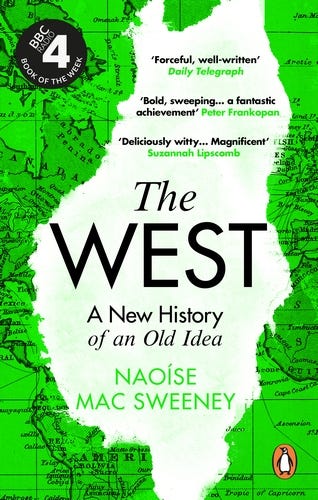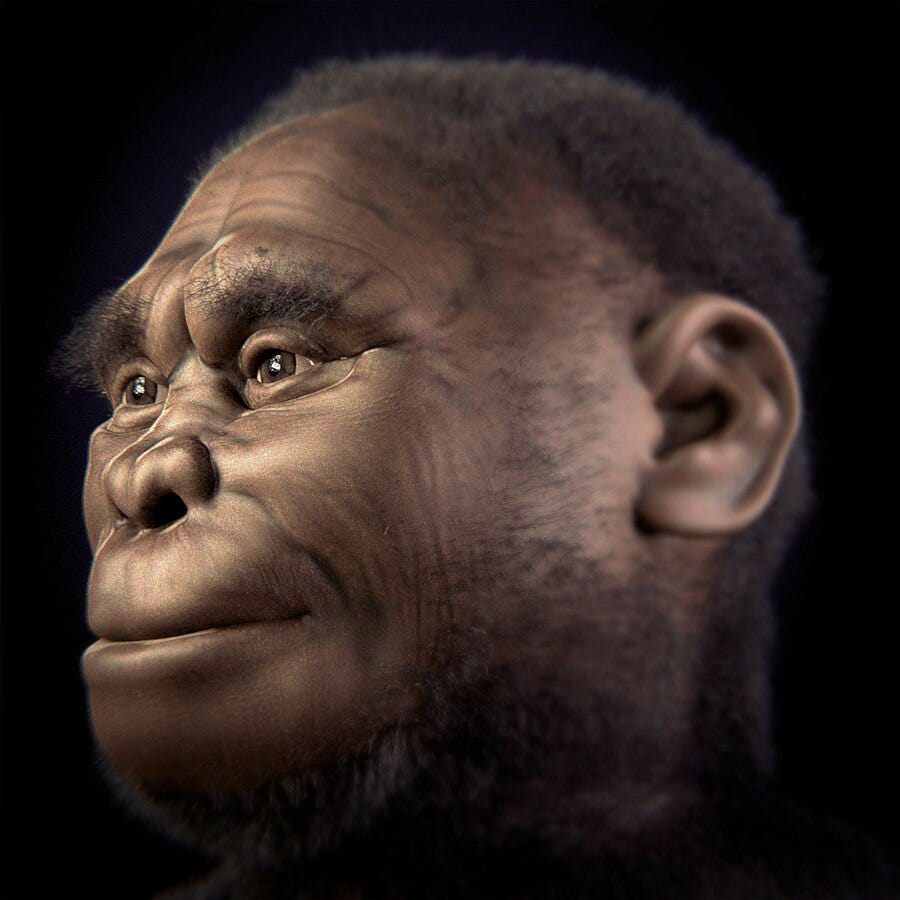Change Everything No 18: Singing different tunes about history
Including a review of Naoíse Mac Sweeney's "The West: A New History of an Old Idea"
Apologies for a Substack hiatus; with the local elections on Thursdays I’ve been out and about - Halifax and Sheffield this weekend, Stroud and Leigh-on-Sea last weekend - and the train journeys have not proved the calm, well wi-fied havens I had hoped. (Are you finding train wifi in the UK seems to be getting worse and worse? And let’s not talk about the general level of service!)
Book news
On Friday, May 10, I’ll be in Housman’s Radical Booksellers, near Kings Cross station, talking about Change Everything, the book. And on Tuesday May 14 I’ll be in Five Leaves Nottingham, a brilliant equally political venue. All welcome - bookings necessary. And if you can’t wait to get to a bookshop, Hive (profits supporting local independent bookstores) now have the e-book for £4.49. (And purchasing it there could help get me above Liz Truss to the top of the “political ideologies” best-sellers.)
Taking on the West
The definitive response to the phrase ‘Western civilisation’ is Gandhi's: "It would be a good idea". But in our modern age of culture wars, archaeologist and historian Naoíse Mac Sweeney's book-length take, The West: A New History of an Old Idea, offers a rich, readable seam for deeper consideration.
A series of mini-biographies, it takes us from the life of Herodotus, a refugee from Asia Minor’s tyranny and the increasingly repressive and xenophobic city of Athens; to 17th-century West Africa, where Queen Njinga, in what is now Angola, skilfully manages local politics and Portuguese invaders with a conversion to Christianity, leading to her comparsion to “the wise women in Greece and the chaste ones in Rome”. It is then on to Revolutionary America, where Joseph Warren used race to justify calls to liberty and democracy in a settler colonial state where people were enslaved. Warren's stance, as Mac Sweeney puts it, meant: "The revolutionaries could comfortably agitate for their own freedom on the basis of their Western heritage, with necessarily extending that freedom to others, and they could decry the subjugation of themselves, as Westerners, to imperial oversight, without rejecting the principle of imperialism in itself." It is a positioning that reflects the narratives emerging from London in 2023 at the Alliance for Responsible Citizenship. Mac Sweeney is at the centre of a struggle about both our present and future.
She begins in the Library of Congress, realising her professional labours are being overlooked by 16 statues supposedly representing this continuous intellectual tradition, from Moses and Homer to Columbus, Michelangelo, Bacon and Gibbon. Despite the work of many modern scholars – notably the brilliant Edward Said, coiner of the term “Orientalism” – the neat, simple, and entirely wrong concept of a linear, continuous Western or “Classical” tradition – often constructed in opposition to “the East” – has persisted in modern political dialogue.
Mac Sweeney unpicks that. The Romans did not see themselves as the inheritors of the Greeks but the descendants of refugees from the Asian Troy, via a stay in North Africa. After the Western Roman Empire, the Islamic world was an inheritor of Greek traditions – as well as frequently the preserver of its texts. The Bactrians in Afghanistan continued to use the Greek alphabet until the 8th century; and in sub-Saharan Africa, Christianity carried the Hellenic cultural flame, the language used in Sudan as late as the 14th century.
By contrast, the diplomat and scholar Godfrey of Viterbo, loyal associate to the Holy Roman Emperor Frederick I, wrote about global history but played down the Greeks. He glorified power as originating in Anatolia, developing in the Roman world and culminating in, what Romans called barbarians, the Germanic dynasties of central Europe.
Later, Mac Sweeney journeys down what she identifies as “the path not trodden”, starting in the Ottoman court with Safiye Sultan (above), epistolary friend of England’s Elizabeth I, when Protestant fringes of Europe saw themselves as having more in common with the Islamic world than the Catholic core. The jurist Edward Coke sought to establish the origins of English common law in Troy – something that medieval chronicles had seen as a foundation of Ottoman jurisprudence. Safiye’s first letter to Elizabeth raises the idea of the Ottomans as the legitimate heirs of Rome. The English ship that brought gifts to Safiye in 1599 was named Hector, for the crown prince of Troy.
Mac Sweeney guides us up to current Chinese historiography, which has largely abandoned the Marxist tradition of inevitable global trajectories in favour of a “grand civilisation” narrative – separate, ideally unmingled, streams of place-based, unmoving patterns. The Ancient Civilizations Forum, initiated by Greece and China, identified eight other compatriots – Bolivia, Egypt, India, Iran, Iraq, Italy, Mexico and Peru. This is a new “civilisations” narrative, each culture distinct, “pure”; a dangerous - and profoundly inaccurate - take.
This is both an informative and fascinating read, and a substantial unpicking of unthinking verities. I hope Mac Sweeney might consider next taking on the claim of “civilisation”, which by implication has labelled other ways of living “uncivilised”.
Picks of the week
Reading
You might know Phyrne Fisher from a streaming service series, but I’ve known her for many years from the books, having a complete set of the paperbacks, which are probably worth nothing at all except for the entertainment value of having them available to read whenever you need an evening of pure escapist fun. For those who don’t know Kerry Greenwood’s creation, she’s an Australian “flapper” detective, accidentally rich, daring, clever and utterly unconcerned with convention. The research is impeccable - among many things I’ve learnt is the verb grimthorpe (from Murder in Williamstown), although probably my favourite is The Green Mill Murder, which not only sees Phyrne undertaking clearly unwise solo flights into the Blue Mountains (successfully of course), but also features a memorable wombat. We all need to get away sometimes!
Listening
I confess that I’m not a great person for music. You are far more likely to find me listening to podcasts. But I have got a serious soft spot for the Canadian singer Loreena McKennitt, who has both a magnificent voice and a wonderfully historically influenced eclectic repertoire. Best known for Celtic, but also Moorish, Continental European and also traditional English influences. So when an email landed saying there were a few tickets being released for the final performance of her tour, I had to go along. And a brilliant night it was too. Looking where to start with her work? I’d recommend The Book of Secrets.
Thinking
A Homo floresiensis reconstruction: Cicero Moraes
The New Scientist (sorry £ - but your library should have a copy) has a useful roundup of where we are in understanding - or rather not - the “new Hobbits”, the second species of very small humans found in South East Asia, Homo luzonensis, named after the sole island on which (very limited) remains have been found. As is typical for the tropics, the DNA is not preserved, so researchers have been handicapped in seeking to understand their origins. Homo erectus, which lived outside from Africa 1.8 million years ago, looks most likely, a conclusion backed by two studies. But another makes the radical suggestion they could be descended from the much earlier Australopithicus. Their remains have not been found outside Africa, but then the fossil record is so fragmentary, and biased geographically, and our understandings of humans past changing so rapidly, nothing should really be ruled out. And one things for certain, we’ve got a long, long way to go, if we make it, to reach the evolutionary success of H. erectus, which was around for more than 1.5 million years.
Researching
The history of the Asia-Pacific is seriously understudied, and even more than most areas still prone to mindlessly following Victorian thinking. So it is good to know that finally aerial scanning has been done in Tonga, demonstrating its society, and many others, had developed urban ways of living many centuries earlier than thought, from around 300AD. One of the researchers said: “"It didn't collapse because the system was flawed; it had more to do with the arrival of Europeans and introduced diseases.” Hello debates about Rapa Nui (Easter Island) - in which old ideas about collapse have clung on long after they should have been abandoned.
Almost the end
Okay, you probably want a podcast to listen to - I find it makes doing the chores far less irritating - so I’ll suggest The History of England’s episode 401 - The Mind of a Martyr, about Charles I of England. It was this series that got me into listening th podcasts, and I’m subscriber for David Crowther’s “shedcasts” - some excellent women’s history stories there. He’s settled comfortably and delightfully in for the long haul of English history; delightfully satisfying like a nice cup of cocoa.
What did you think?
You can also find me on Instagram, Facebook, LinkedIn, TikTok and X.







Thanks for the link to Loreena McKennitt - but have you also listened to Pura Fe (https://www.purafe.com/) ?
Fabulous voice - but also a brilliant slide guitarist. And part of Ulali, who are also worth looking out.
I’m in awe of your enormous intellect and how much reading and learning you manage to fit in, outside of the considerable reading and learning you do for your role in the Lords. Thanks for sharing these recommendations!